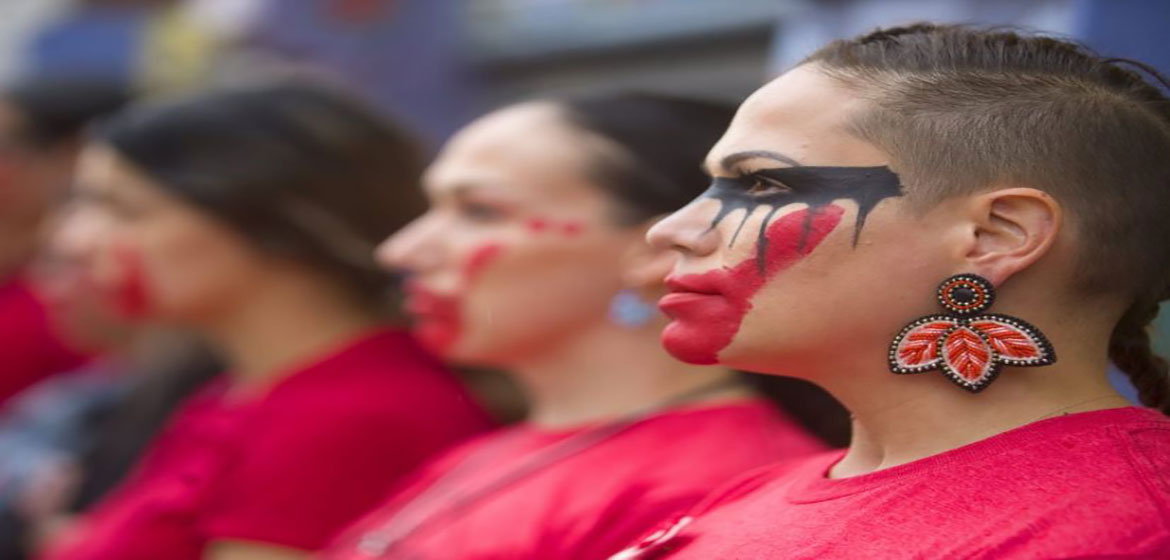BY JENNIFER BIEMAN
With drums, war paint, songs and art, Indigenous women and supporters spoke out Monday against human trafficking in London and stood in solidarity to remember Canada’s missing and murdered indigenous women and girls.
Dozens took to the street outside Atlohsa Family Healing Services on Richmond Street Monday afternoon for songs and an otherwise silent demonstration against human trafficking and the devastating effect it has on Indigenous communities.
“There’s women who are being silenced,” said Elyssa Rose, anti-human trafficking co-ordinator at Atlohsa. “We are warriors and we are standing up for people who do not have a voice. . . . We need to raise awareness.”
Female demonstrators, with red paint handprints over their mouths and war paint across their eyes, drummed and sang to raise awareness about the toll human trafficking is taking on Indigenous women and girls.
![]()
Wearing war paint, with a red hand across her mouth, signifying the lack of voice for Indigenous women who are being trafficked across Canada, Vanessa Ambtman-Smith was at the silent protest in front of Atlohsa Family Healing Services on Richmond Street in London. (Mike Hensen/The London Free Press)
The drumming, a traditionally male-dominated activity, is an act of defiance and a way to speak up for their missing and murdered sisters, drum leader Danielle Hill said.
The agency is debuting an art installation called See Me, a tribute to Canada’s missing and murdered Indigenous women and girls. The exhibition includes hanging scrolls with the names of the missing women from Ontario, tables of framed photographs and hundreds of gold-painted paper birds to represent the victims.
Indigenous healer and storyteller Liz Akiwenzie spoke about the national issue of missing and murdered Indigenous women and girls after the silent demonstration.
Human trafficking is a particular concern for Indigenous People since Indigenous women make up about 50 per cent of trafficking victims, despite representing only four per cent of the Canadian population.
![]()
Gold birds in this artwork at Atlohsa Family Healing Services represent missing and murdered women, organizers say. (Submitted)
In September 2016, the federal government launched the National Inquiry into Missing and Murdered Indigenous Women and Girls, which included fact-gathering and public meeting across Canada. The final report will be presented at a ceremony in Gatineau, Que., on June 3.
Human trafficking has become a high-profile issue in Southwestern Ontario in recent years. Anti-trafficking advocates and police have targeted public awareness campaigns in cities along the Highway 401 corridor, including London, in a bid to address the chronic issue.
Source:
Related to SDG 10: Reduced inequalities and SDG 16: Peace, justice and strong institutions



